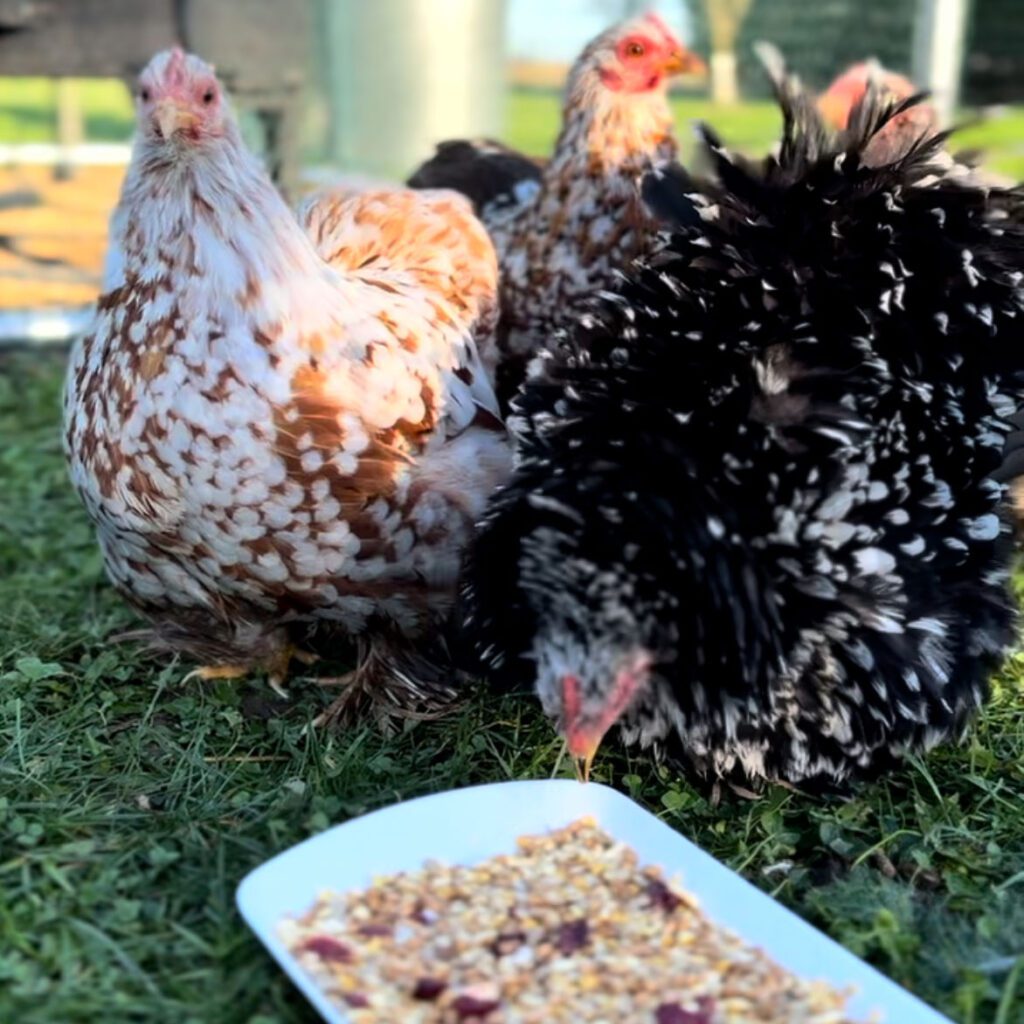Getting mites in your coop is pretty heart breaking, your poor hens will be itchy and uncomfortable. Red Mites along with other mites live on the bird but can
Chickens are becoming increasingly popular as pets in the UK as they are fairly easy to look after, have tremendous personalities and also give a little something back in the form of delicious eggs. We love every chicken we raise on our farm and want to make sure that each home they go to has a good idea of the best way of looking after our beautiful chickens. We are able to give you advice in person or via phone or email to make sure your chickens stay healthy and happy.
Before You Buy Chickens
It is important to get to grips with some basic facts about keeping chickens before rushing out and buying them. Chickens require attention every day, much like any other household pet. You should of course consider the size of your garden and whether it is suited to keeping chickens. Keep in mind, where are they going to sleep, where they will be allowed to roam, how to keep them fed and watered if you are way for a period of time and how to keep them safe from foxes and other potential predators. Once you have decided that keeping chickens is definitely something you would like to do then preparing their habitat before they arrive is important.
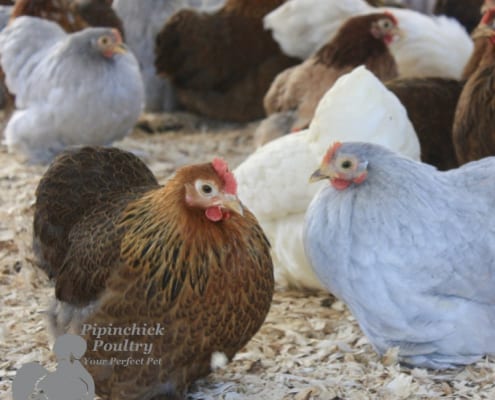
Buying a chicken house
This is likely to be the most expensive outlay for keeping your chickens and there are many different sizes and designs on the market available for you to purchase. It is often a case of getting what you pay for and cheaper houses will require regular wood treatments and other maintenance to ensure they are kept in good condition for keeping your chickens safe and warm inside. When purchasing a chicken coop inspect the quality and thickness of the wood which is a good indication of how long the coop will last. It is also possible to build your own coop, if you are so inclined. You should also check the coop has nest boxes, appropriate ventilation and perches for the birds to roost but also keep in mind the box will require regular cleaning and maintenance. And access should be easy for you to do this. The floor of the house can be covered in wood shavings, straw or chopped cardboard to keep the birds warm. Take a look at our different types of chicken houses for sale online
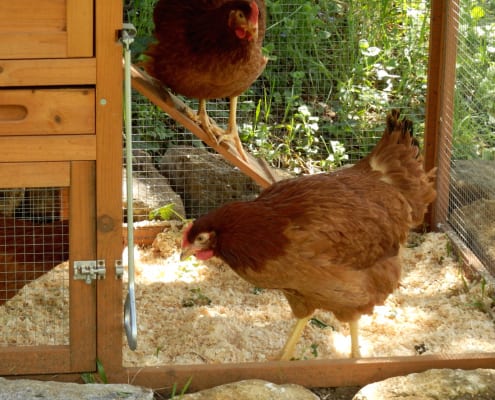
Chicken Access Areas & Safety
Chickens also require access to areas where they are able to stretch their legs. Many people allow their chickens to roam free around their gardens, which is ideal. There is also the option building a chicken run which should be built as large as possible to keep the birds happy. It should also be built securely, again to defend against predators.
We have already covered the importance of keeping your hens safe from predators and a couple of considerations to bear in mind when providing them with a home and exercise area. There are other ways you can keep the animals safe such as an automatic po-hole opener which will automatically open and close the doors of the house based on a timer to ensure that your chickens are safely locked inside the house at night and it will also open in the morning to let the chickens out.
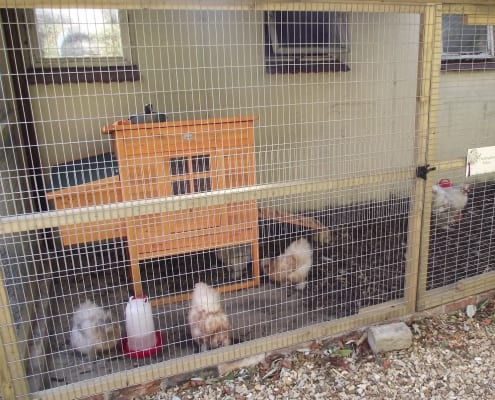
Feeding Chickens
There are some brilliant, nutritionally balanced chicken feeds available to keep your chickens in the best possible condition. Many people believe that you can feed chickens on food scraps and let them forage for the rest, however, it is likely that they will miss out on important nutrients which is why we always suggest using formulated feeds. Layers Pellets are the best solution, although cheaper ones, such as mash, are available. If you are keeping a significant number of birds ensure there is enough space at your chicken feeders, or that you have enough feeders, for all of your birds, as the pecking order may mean that some chickens may miss out on food. There are certain plants, such as rhubarb or potato leaves, that are poisonous to chickens. Ask us for a full list of these items. Keeping your chickens well fed on a nutritionally balanced diet is also good for you as they will produce more eggs! We sell large range of excellent quality chicken feed, take a look at our range of chicken corn and feed here.
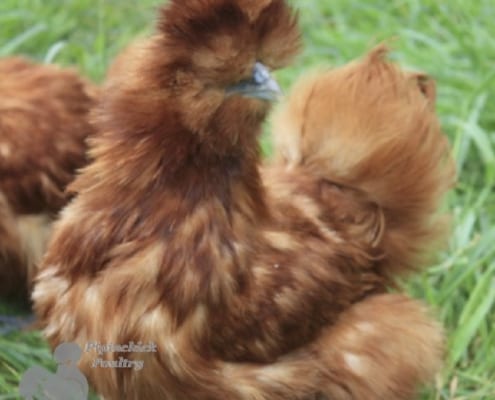
Keeping your chickens Hydrated
As with any living thing, keeping your chickens well hydrated is of the utmost importance. You should ensure that the chickens always have enough clean drinking water. Similar to with the feeders, you should ensure that there are enough water containers for all of your chickens to have a drink, regardless of the pecking order. Containers should be large enough to last all day, with a bit left spare. Many people also add a splash of apple cider vinegar to the water which is proven to be good for chickens. You can buy specially designed poultry drinkers which will help to ensure your flock stays hydrated and healthy.

Choosing Your Chickens
Now comes the fun bit, choosing which chickens you would like to keep. We have a beautiful range of chickens from you to choose from including Silkies, hybrid chickens, bantams hens, large pure bread chickens and more. You can view our buying guide here or give us a call and arrange a visit to see the chickens in the flesh!
Welcoming new chickens is always an exciting moment, whether you’re a first-time chicken keeper or adding to your existing flock. It’s natural to want to interact with them straight away, but giving them the right start by settling them in correctly will help them to feel safe and happy in their new home.
Give Your Chickens Time to Adjust
When your new hens arrive, it’s important to provide them with a calm and stress-free environment. Resist the urge to pick them up straight away—while it’s tempting to give them lots of attention, they’ll need a few hours to explore their new surroundings on their own terms.
Make sure their food and water are easily accessible and visible so they can find them without difficulty. It’s best to let them settle in quietly and observe from a distance as they start to move around and become familiar with their new living arrangements.
Building Your Chickens' Trust with Treats
Once your hens seem a little more comfortable, you can begin to bond with them by offering treats. A great way to build trust is to sprinkle a few treats, such as live grubs, such as Mealworms, Mario Worms, or Calci Worms into their run; this will encourage them to associate you with positive experiences. Over the next two to three weeks, continue to offer treats by hand when you visit them—this will help them see you as a source of good things, making them friendlier and more comfortable around you.
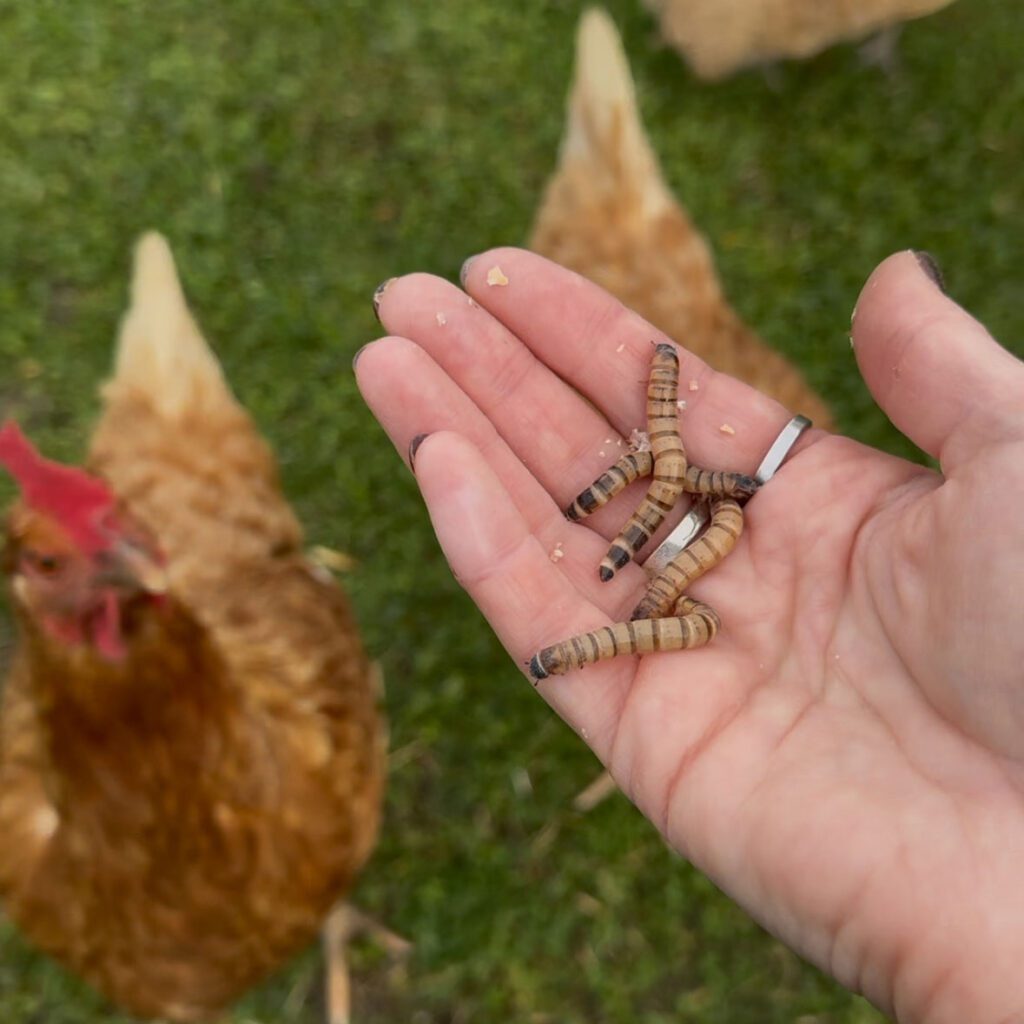
Settling Specific Chicken Breeds
Different chicken breeds have different temperaments, and understanding their needs will help you provide the best care during their settling-in period.
Settling in Your New Silkies
Silkies are known for their calm and friendly nature, but they can also be quite timid when introduced to a new environment. Because of their soft, fluffy feathers, they rely more on their sense of sound and touch than sight, so approach them gently and talk to them softly. Silkies love routine, so keeping their feeding times consistent will help them settle in more quickly.
They also enjoy companionship, so if you’re introducing them to an existing flock, make sure they have other Silkies or similarly gentle breeds to bond with. Providing plenty of sheltered areas will help them feel secure, as they’re not the best at flying or roosting high up.
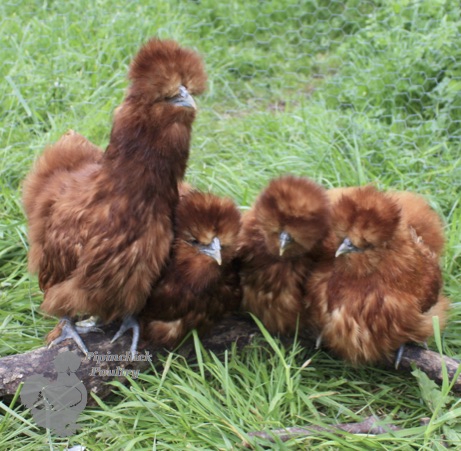
Settling in Your New Pavonas
Pavonas are a stunning and unique breed, often admired for their elegance and personality. They can be a little more reserved at first, so patience is key. Like Silkies, they will respond well to routine and gentle interaction. Because Pavonas are more independent than some other breeds, they may take a little longer to build trust with their new owner, but offering treats regularly will encourage them to warm up to you.
Providing a spacious run with plenty of perches and hiding spots will help them feel safe and encourage them to explore their new home confidently.
Settling in Your New Pekin Bantams
Pekin Bantams are small, round, and full of personality! They are generally friendly and docile, making them a great choice for families. These little birds love attention but can also be a bit nervous when first settling in. Give them time to adjust at their own pace, and use treats as a way to gain their trust.
Pekins enjoy scratching around, so a run with soft ground and plenty of bedding will keep them happy. Because of their feathered feet, make sure their run stays clean and dry to prevent potential health issues.
Creating a Comfortable Environment
Regardless of breed, all new chickens need a secure, well-prepared home to help them feel safe. Here are some key things to conside
Safe Housing – Ensure their coop is predator-proof and well-ventilated, with enough space for each bird to roost comfortably.
Spacious Run – Even if you plan to free-range your hens eventually, start by keeping them in a secure run so they can familiarise themselves with their new surroundings.
Bedding and Nesting Areas – Provide clean, cosy bedding in the coop and make sure nest boxes are set up for when they start laying.
Routine – Chickens thrive on routine, so try to feed and let them out at the same times each day.
When to Let Them Free-Range
If you plan to allow your hens to free-range, it’s best to wait at least a week before letting them out. This gives them enough time to recognise their new home and feel secure in their surroundings. Start by letting them out for short periods under supervision and ensure they know where to return at night.
Building Trust with Your Hens
Helping your new hens settle in is all about patience, consistency, and building trust. By giving them space to adjust, using treats to create positive associations, and providing a safe and enriching environment, you’ll soon have happy, confident chickens that feel right at home.
At Pipinchick, we’re passionate about high-welfare chicken keeping and offer a variety of well-reared, friendly hens to suit every keeper. Because our hens are reared lovingly by us here on our farm in the beautiful Somerset countryside near Bristol, they have not been imported from Europe like many other live chickens for sale, and this means they have already been given the best start in life. Whether you’re welcoming Silkies, Brahma Chickens, Bantams, Cochin Chickens or any type of chickens to your flock, the key is to let them settle at their own pace and enjoy the rewarding experience of keeping backyard chickens!
For more tips on caring for your chickens, you can follow Pipinchick on Facebook or Instagram here.
